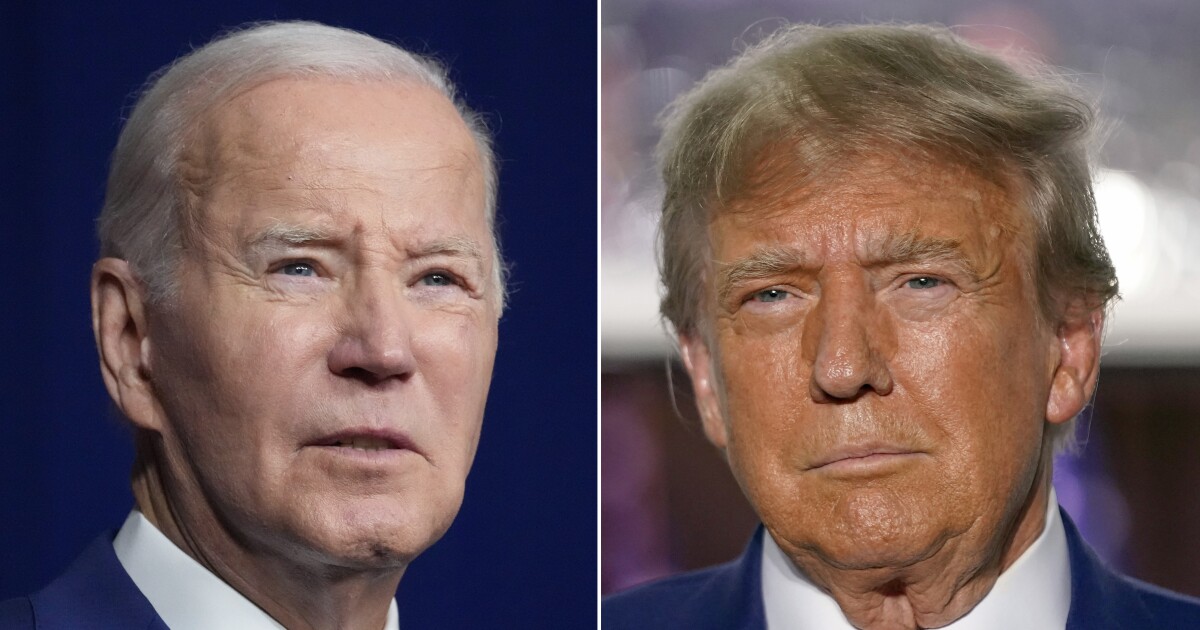

President Joe Biden has said he ran for office “to restore the soul of the nation, rebuild the middle class, and unite the country.” With 2024 looming, it’s time to take stock of other promises he has made while campaigning and in office. This Washington Examiner series, Oath of Office, will investigate whether Biden has kept up his end of the bargain. Part One will examine his pledge to restore the “soul” of the United States.
President Joe Biden‘s 2020 campaign message was direct: I’ll get rid of Donald Trump and restore the “soul” of the nation.
It was a winning pitch and so effective that Democrats have urged the president to roll it out again heading into 2024, which naturally begs the question: Did Biden accomplish what he set out to do?
BIDEN’S OFF-RAMP SHOULD HE BOW OUT OF THE 2024 CONTEST
Todd Belt, a professor at George Washington University and director of the school’s Political Management master’s program, told the Washington Examiner that “in some ways” Biden has restored the soul of the nation, “but in most ways no.”
“He can be lauded for shepherding through some legislation that had bipartisan support and other pieces that did not,” he explained. “The idea of bipartisan solutions to the nation’s problems as a part of the soul of the nation (compromise) was only partially realized.
“Another part of the nation’s ‘soul’ could be considered U.S. leadership internationally, and he has definitely done that with his deft handling of the Russian invasion of Ukraine and his ability to hold together the Western alliance,” Young continued. “Unity and reaching across the aisle were a theme of his inaugural address. However, one needs a willing partner, and Republicans were quick to rally behind Trump and his divisiveness after initial condemnation of the Jan. 6 insurrection.”
Like Biden, Trump is the presumptive nominee of his party heading into 2024, despite facing 91 felony indictments in state and federal courts. In fact, Trump’s polling has bounced with each set of subsequent indictments, and he currently leads Gov. Ron DeSantis (R-FL) and former United Nations Ambassador Nikki Haley (R-SC), who are battling it out for second place in the Republican presidential primary, by more than 47 points, according to the RealClearPolitics polling average.
Trump is also back on social media, a powerful political tool, as proven by his 2016 guerrilla White House run. When Trump left office in 2021, he had been barred from Facebook, Instagram, YouTube, and Twitter over his behavior and public comments on and leading up to the Jan. 6 Capitol riot.
However, those aforementioned social media companies lifted their “permanent” suspensions of his accounts. Elon Musk reinstated Trump’s Twitter account, now known as “X,” in late 2022, and Facebook and Google followed suit in early 2023. Trump hasn’t returned to routine posts on these sites but reserves his trademarked, all-caps stream-of-consciousness venting for “Truth Social,” the social media site he and business associates launched following his aforementioned social media bans.
Meanwhile, the former president has resumed his patented campaign-style rallies, drawing thousands in states nationwide. Trump frequently rails against the Biden administration’s policies and what he describes as a targeted political witch hunt aimed at stopping him from taking the White House back, yet these events don’t enjoy the same wall-to-wall media coverage as their 2016 and 2020 iterations.
On the campaign trail, Trump has voiced what some have called his baser tendencies. Analysts have noted that a lack of establishment Republicans in Trump’s inner circle following January 6 means that this time around, we’ll get a totally unfiltered version of Trump, beholden to no one but extreme loyalists. Still, he promised during a town hall with Fox News that he wouldn’t be a dictator, except for on “Day One.”
Ultimately, despite Biden’s 2020 campaign promise, Trump remains a massive political factor but a notably different beast. Trump’s popularity could be viewed as more an indictment of Biden’s own severe polling problems than a legitimate desire to live through the previous administration’s drama all over again.
Case in point: Trump leads Biden by an average of just over three points, per RCP, yet Haley leads Biden by nearly six points and is ahead of the president by double digits in multiple offerings.
As for restoring the soul of the nation, Biden himself admitted during his April hard-launch of his reelection effort that that job isn’t finished.
“When I ran for president four years ago, I said we are in a battle for the soul of America. And we still are,” the president stated in a video posted to X.
“The question we are facing is whether in the years ahead we have more freedom or less freedom. More rights or fewer,” Biden continued. “I know what I want the answer to be, and I think you do too. This is not a time to be complacent. That’s why I’m running for reelection.”
“This isn’t an overnight job. Our country has been broken since well before Trump, though he did make things significantly worse,” one Democratic campaign operative familiar with Biden’s reelection strategy told the Washington Examiner. “But President Biden has and will continue to work tirelessly for the American people, protecting our national security, lowering costs for families, and helping those who have been ignored by Washington for decades.”
Unfortunately for the president, however, many of Biden’s promises to voters from the 2020 campaign trail have yet to come to fruition, and there are concerns that enthusiasm for another four years of Biden might be waning among Democratic voters.
Biden was unable to usher voting rights legislation through Congress successfully, a major sticking point for Black voters in particular, has been hampered by conservative lawsuits and even the Supreme Court in his efforts to extend student loan debt relief to American borrowers and the economy has not completed its post-coronavirus recovery, though the administration has collected a number positive indicators in that area in recent months.
Furthermore, the Democratic Party itself is splintering over Biden’s handling of U.S. involvement in the wars in Ukraine and Israel, operations regarding the southern border and immigration, abortion rights, gun violence, and more.
CLICK HERE TO READ MORE FROM THE WASHINGTON EXAMINER
Still, Belt argues that dusting off his 2020 campaign pitch is a more fruitful strategy than leaning into “Bidenomics,” the summation of his economic priorities, “which he looks to be dropping as a campaign theme.”
“The problem with Bidenomics was two-fold. The economic statistics of late — particularly low unemployment, solid growth, and low inflation — don’t match individuals’ perceptions of the economy. It’s hard to message past voters’ preconceived notions,” he explained. “Worse yet, Bidenomics made the election a ‘referendum,’ which is bad for an unpopular president. Discussing the soul of the nation is better in terms of making the election a ‘choice’ between Biden’s version of America and Trump’s.”







